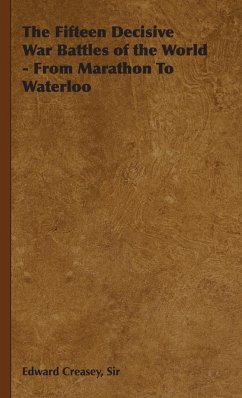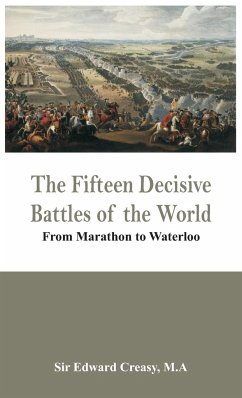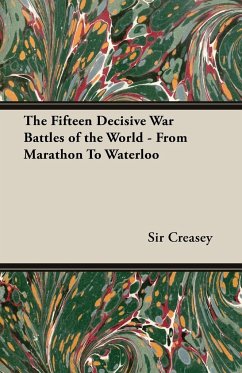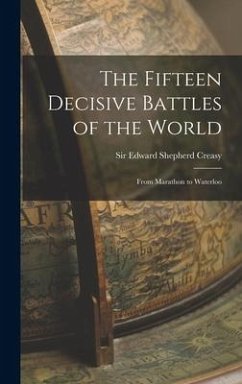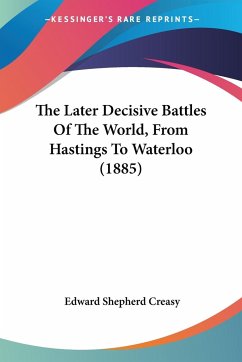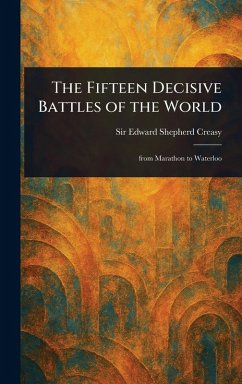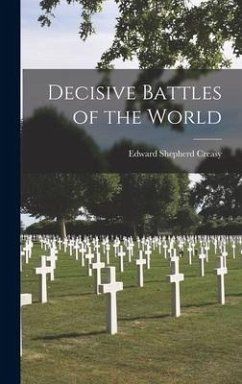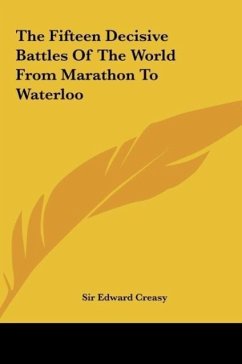
The Fifteen Decisive Battles Of The World From Marathon To Waterloo

PAYBACK Punkte
20 °P sammeln!
In Upper Asia, beyond the Euphrates, the direct and material influence of Greek ascendancy was more short-lived. Yet, during the existence of the Hellenic kingdoms in these regions, especially of the Greek kingdom of Bactria, the modern Bokhara, very important effects were produced on the intellectual tendencies and tastes of the inhabitants of those countries and of the adjacent ones, by the animating contact of the Grecian spirit.



